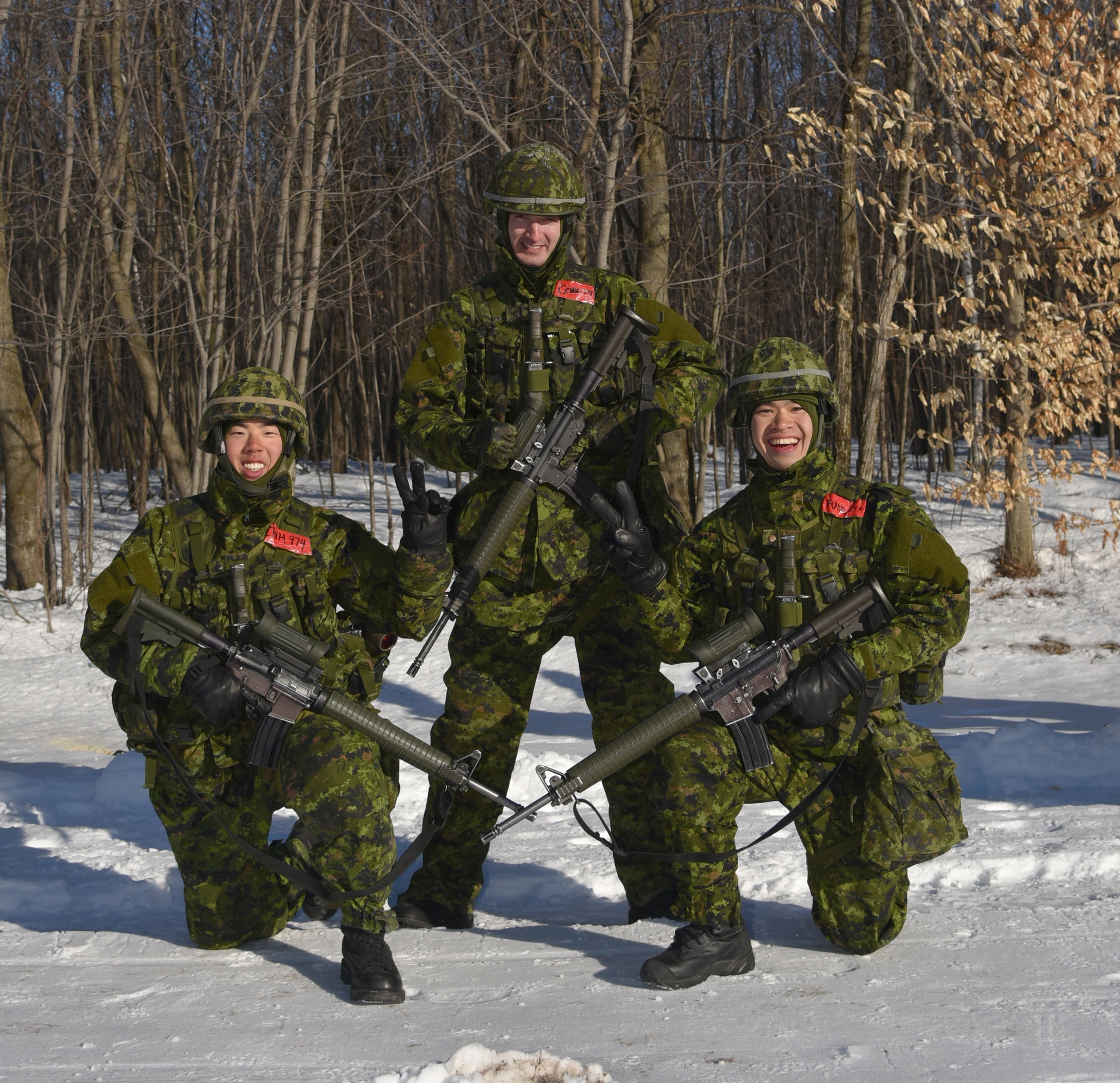
Pharmacy student Sean Chih completes military officer training on co-op

His mother, however, did not approve, and so Sean turned to other options. In grade 11, he got a job as a pharmacy assistant, and grew to love the health care world and the positive impact he could have on others. But after five years in a community pharmacy, he began to crave variety.
“What I needed was a new challenge”, Sean noted. He brought his concerns up with a colleague. She said, “What about becoming a Canadian Armed Forces Pharmacy Officer?”
My eyes lit up. I was thrown right back to my childhood passion for the military. I began researching everything there was to know about military pharmacists, and I knew then that Pharmacy Officer was the career for me.
To achieve his dream, Sean would have to earn a pharmacy degree and pass Basic Officer Training with the Canadian Armed Forces (CAF). Sean applied to the CAF shortly after he was accepted at Waterloo Pharmacy. While his peers spent their first co-op term – January to April of 2018 – in pharmacies and hospitals, Sean was shipped off to Quebec for basic training.
“The first day at basic was intimidating,” he says. “I entered a massive building called the Mega and the hallways were packed with hundreds of recruits in uniform marching. Some were suited up in full fighting order – tactical vest, helmets, and assault rifles. The words of command, barked-out by our Directing Staff, began as soon as I arrived, and I had the same thought as most people: ‘What did I get myself into?’”
Basic Military Officer Qualification – or basic training – is a rigorous 14-week course designed to see if recruits have what it takes to become officers and serve in leadership roles in Canada’s military. Every officer in the CAF has to go through the same training at the Canadian Forces Leadership and Recruit School at Saint-Jean-sur-Richelieu, a city just south of Montreal.
“Whether you’re a pharmacist or a pilot, 50 or 20, male or female, you’re treated the same. Everyone is expected to perform physically and mentally. We woke up at no later than 0500 and had a constant stream of classes or some sort of physical training until 2300,” says Sean. “While out in the field training, our days were sometimes even longer!”

Sean (left) out on training with 2nd Lt. Coburn (centre) and 2nd. Lt. Fung (right).
The first seven weeks focused on basic skills – including familiarization with the Canadian Armed Forces and the roles of officers – and more complex content in military tactics, weapons training, military drills, and more. As recruits progress through training, they are educated about everything from how to lead to the finer points of battle procedures and topography. To hone leadership skills, each member was also given the responsibility of leading a platoon for an entire day.
“There were so many challenging elements to training,” says Sean. “Overcoming sleep deprivation, hunger, restricted phone access, keeping warm in the winter, and staying healthy. Sleep deprivation was the worst: it was purposefully enforced to test our abilities to function with little sleep, and to mimic the very real situations we would encounter during deployments.”
Illness was also a challenge. The close confines of military barracks can, at times, be conducive to acquiring whatever cold virus is going around. Being ill further challenged Sean with the demands of training.
“Officer training was tough, but not impossible,” Sean reflects. “By the end I was definitely physically stronger than when I began, and significantly leaner! I also grew to value many of the little luxuries in life one takes for granted---like dinner that doesn’t come out of a ration pack and a good night’s sleep!”
“Would I do it again? Well, Basic Training is not a course I’d want to do on a recurring basis, but it is definitely one that I am proud to have completed: it has made me physically and mentally stronger and given me the confidence that there’s no obstacle too tough to overcome.”

“Captain Maddox has become a huge inspiration to me for continuing my pursuit of becoming a PharmO,” says Sean. “He’s provided firsthand experience as to what being a PharmO really entails.”
As a fully qualified military pharmacist, Capt. Maddox is not only responsible for managing the clinic’s pharmacy operations and leading its personnel, but for doing the same when deployed on Operations overseas in support of Canada’s North Atlantic Treaty Organization (NATO) and other allies.
“Being a PharmO would allow me to put my pharmacy knowledge and skills to use, to move and work in different places around Canada and the world, and to be part of teams that help people both in Canada and abroad,” says Sean.
Sean will graduate from pharmacy school in 2020. After that, he plans to complete his PharmO training in Borden, Ontario.